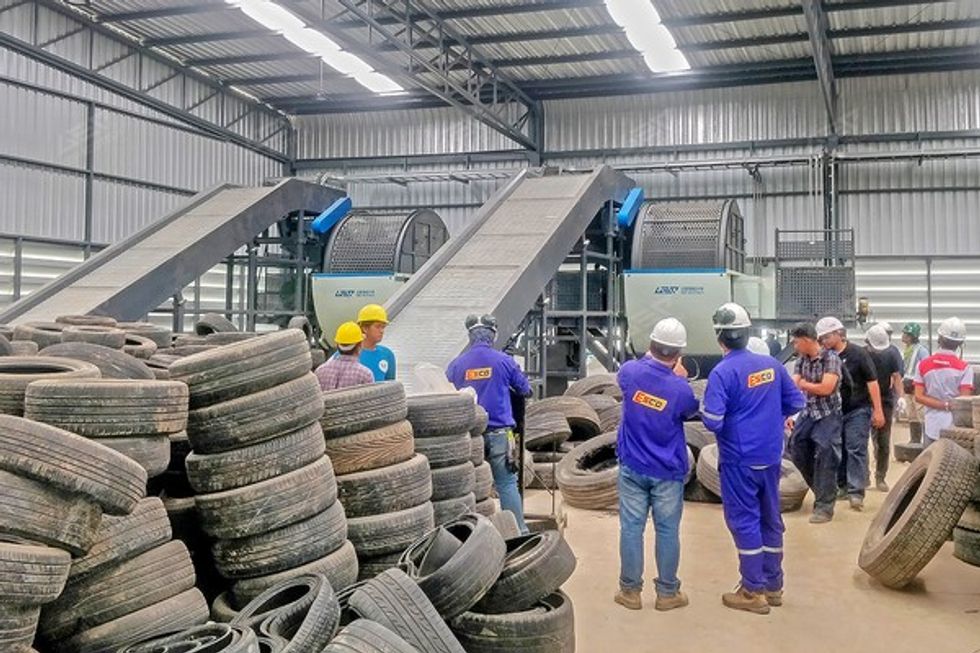Tire shredding machines play a crucial role in the recycling and disposal of used tires, transforming them into manageable pieces for further processing. The cost of these machines varies significantly based on several factors. Here’s an overview to help you understand what influences the price and how to get the best value for your investment.
1. Factors Affecting the Price of Tire Shredding Machines
(1)Capacity:
Small-Scale Machines: These are suitable for lower volume operations and typically cost between $20,000 to $50,000. They are designed to handle smaller quantities of tires and are ideal for smaller businesses or startups.
Medium-Scale Machines: With a capacity to process moderate amounts of tires, these machines range from $50,000 to $100,000. They are suitable for medium-sized enterprises or municipal recycling programs.
Large-Scale Machines: For high-volume processing, prices can exceed $100,000, reaching up to $150,000 or more. These machines are built for industrial-scale operations and high throughput.
(2)Features and Technology:
Basic Models: Standard machines with essential features will be on the lower end of the price spectrum. They are effective but may lack advanced functionalities.
Advanced Models: Machines equipped with advanced technology, such as automated controls, enhanced safety features, and higher efficiency, will command a higher price.
(3)Quality and Brand:
Established Brands: Reputable manufacturers with a track record of reliability and performance often have higher prices due to their proven quality and support services.
New or Lesser-Known Brands: These might offer lower prices, but it’s essential to consider their performance, durability, and after-sales support.
(4)Customization and Accessories:
Standard Configurations: Basic setups without additional accessories are more affordable.
Custom Configurations: If you need specific modifications or additional components like conveyor systems, magnetic separators, or advanced control systems, the cost will increase accordingly.
(5)Location and Shipping Costs:
Domestic Purchases: Purchasing from a local supplier can reduce shipping costs and facilitate easier support.
International Purchases: If importing, be prepared for additional costs related to shipping, customs duties, and potential delays.
2. How to Get a Quote
To obtain an accurate price for a tire shredding machine tailored to your needs, consider the following steps:
(1)Determine Your Requirements: Assess your processing needs, including the volume of tires, desired output size, and any additional features or customization.
(2)Contact Suppliers: Reach out to manufacturers and suppliers with your specifications. Provide details such as capacity, desired features, and any special requirements.
(3)Request Quotations: Obtain detailed quotations from multiple suppliers to compare prices and services. Ensure that the quotes include all potential costs, including shipping and installation.
(4)Evaluate Total Cost of Ownership: Consider not just the initial purchase price but also ongoing maintenance, energy consumption, and operational costs.
(5)Check Reviews and References: Research the supplier’s reputation and review feedback from other customers to ensure reliability and support.
The price of a tire shredding machine can vary greatly based on capacity, features, brand, and customization. By carefully evaluating your needs and obtaining quotes from several suppliers, you can make an informed decision that aligns with your budget and operational requirements. Investing in a quality tire shredding machine is essential for efficient tire recycling and contributes to a sustainable recycling process.
For a personalized quote and to discuss your specific requirements, please contact us through the following methods:
Phone Number: [+86-371-56177311]
WhatsApp: [+8615838176062]
WeChat: [+8615838176062]
Email Address: [sales@gepecotech.com]
We look forward to helping you find the right tire shredding machine for your needs.
Understanding the Price of Tire Shredding Machines
Tire shredding machines play a crucial role in the recycling and disposal of used tires, transforming them into manageable pieces for further processing. The cost of these machines varies significantly based on several factors.














